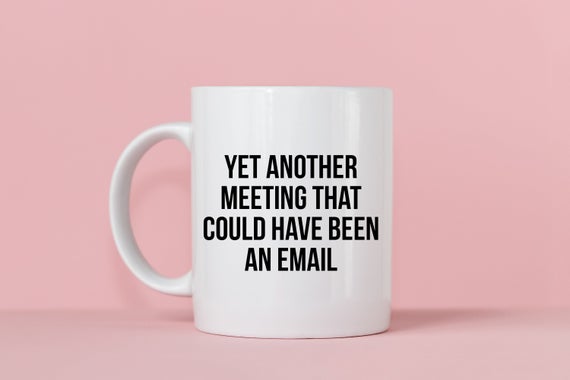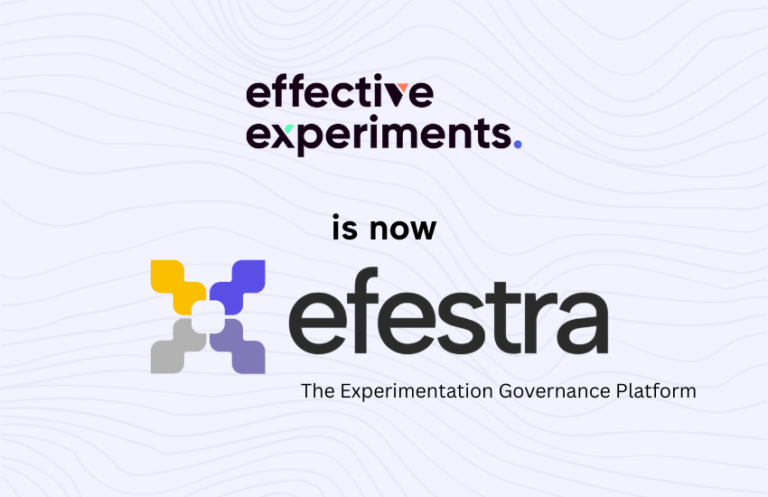There are few practices that Optimizers have become so accustomed to, that they haven’t stopped to question why. In this blog article, I will share those practices that from our viewpoint has hindered experimentation programs.
The biggest of these is MEETINGS.
Whether or not the Coronavirus crisis occured, meetings have been a bane to the productive workings of many.
Now with everyone forced to work indoors, everyone is scrambling to virtualise meetings through Zoom or Google hangouts. Ultimately, this is still the time suck it was, just in a different format.
The biggest flaws of a meeting, other than the time it takes, is the simple fact that everyone one else attending the meeting has their own agenda and they have other things to get on with after listening to what you have to say.
Optimizers have become accustomed to presenting their experiment results with pomp and passion in front of a room of stakeholders. The expectation has been that by sharing it this way, stakeholders will see the value of the tests being run and will remember everything well enough to make future decisions based on it. This discounts the fact that everyone in the room has their own agenda and KPIs to worry about. Even if you have the most groundbreaking results, chances are the motivation and enthusiasm levels of those attending will never match yours.
They leave the meeting and quickly forget about what was meticulously presented in your powerpoint. The deck that gets shared sits firmly in their inbox save for a quick glance. The knowledge is now as good as useless to the company. The optimization team has moved on to the next test.
I call these types of testing programs a Passive Optimization Program.
The optimizers have been told to share the results of their A/B tests as a way to engage the stakeholders. They send out emails or present it in meetings thinking and are satisfied they have ticked off that box. However, doing it this way to an audience that’s disconnected from the workings of experimentation, doesn’t yield real outcomes.
It’s no wonder that the biggest challenge of experimentation teams is the lack of buy in from senior management and worse still, lack of real business impact and the ability to influence big business decisions.
There is a chinese proverb that comes to mind which seems very apt

Through presentations and email updates, Optimizers are only “Telling” rather than helping them “Remember” or “Understand”
To achieve this, the stakeholders and other teams need something else.
The ability to self serve
They need to be able to self-serve whenever the need arises. Imagine a stakeholder deliberating on what strategy makes sense. If they need insights to help support their plans, they should be able to find it asap. This makes them an active participant and their ability to find insights at will helps them feel more connected to the work the CRO has done.
All too often, the work done by CROs are hidden in spreadsheets that require an excel wizard to untangle or in cumbersome PDFs that take hours to sift through. The same meticulously created powerpoint presentations and pdfs that have been gathering virtual dust after having not been looked at after the presentations. Optimizers become bottlenecks as the business scrambles to find useful insights that are locked in jargon filled documents and scattered across different tools.
Insights and learnings about customer behaviour are at a premium now as strategy evolves to keep up with the pace of change inflicted by the current crisis.
The optimizers who have helped their stakeholders and teams self-serve and find insights are the ones who have become trusted advisors in their organization.
Want a better way to get stakeholders to self-serve and see the value of your work without you having to manually share information all the time?
Effective Experiments has been helping organizations build a centralised experimentation knowledge base, ideation backlog and CRO research library in one place where stakeholders can find relevant insights within seconds.
Want to see how you can become a trusted advisor in your organization instead of just a “CRO specialist”
SCHEDULE A NO-OBLIGATION DEMO & CHAT WITH US TODAY



